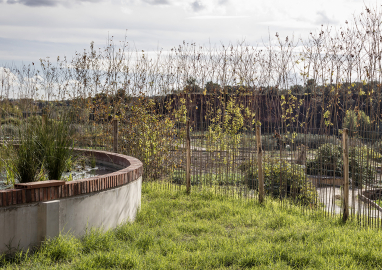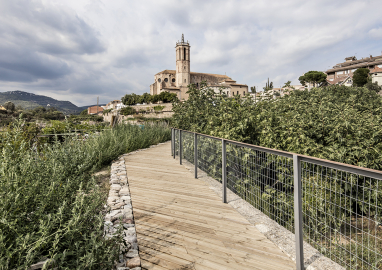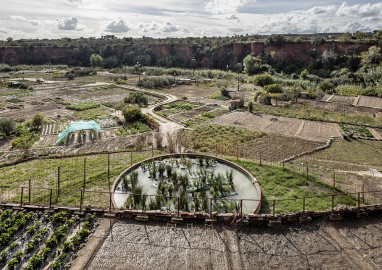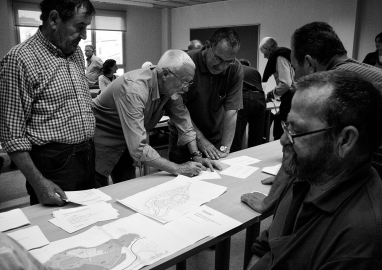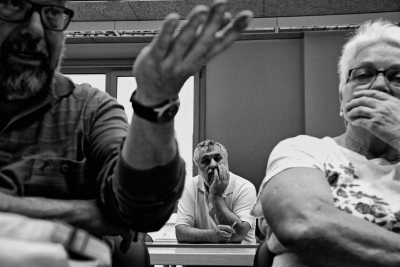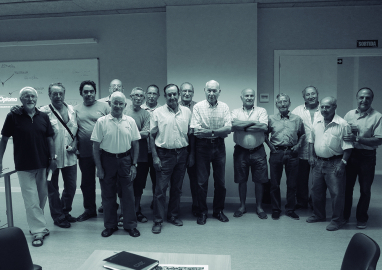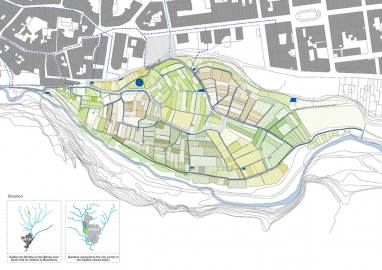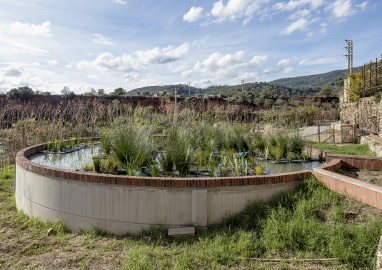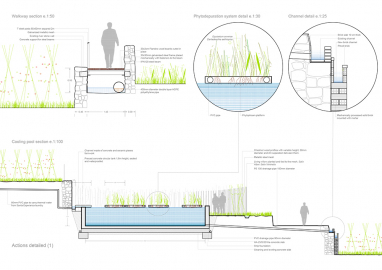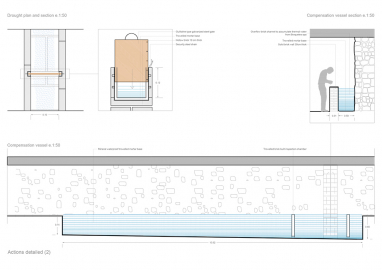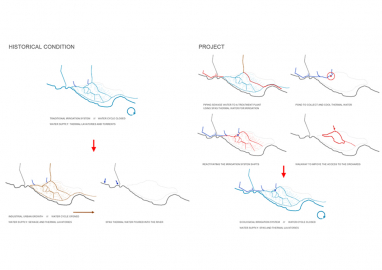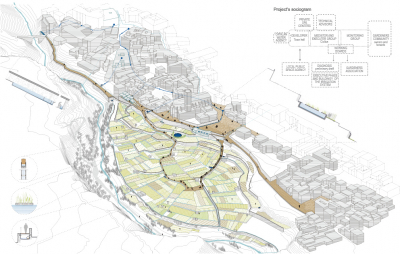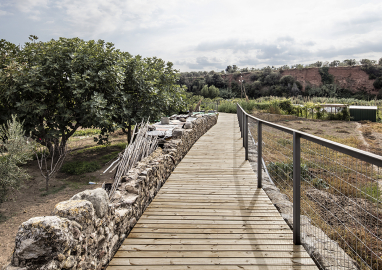Recovery of the Irrigation System at the Thermal Orchards
Hortes de baix thermal gardens had been deteriorated by wastewater contamination. The project recovers the horticultural landscape as a new self-managed open public space empowering the irrigation community and recognizing the key value of traditional water management as intangible heritage towards urban sustainability.
Hortes de Baix private vegetable gardens historically irrigated with thermal water had been deteriorated by wastewater contamination. The project recovers the private horticultural landscape as a new self-managed open public space. A participatory action research process with the irrigation community and stakeholders allows co-designing two main interventions: a new pool to accumulate and cool the surplus water from thermal spas recovering the irrigation system and a walkway over the main canal where wastewaters are channeled creating a path allowing the vegetable gardens to become an open public space. The process empowers the irrigation community, reaching the gardeners legal organization setting-up to manage the everyday life, and recognizes the key value of traditional water management as intangible heritage towards urban sustainability.
Hortes de Baix is a heritage irrigation space annexed to Caldes de Montbui that has suffered the gradual environmental and social degradation of its landscape. This characteristic process of the peripheral landscapes is here mainly caused by the water pollution of the stream that supplies the irrigation system, the poor accessibility to the space and the breakdown of the irrigation community.
The project was born within the municipal Public Space Board, which gives voice to local initiatives. The assignment was to solve the need of more clean water for irrigation, to channel the wastewater open flow and to facilitate accessibility from the city center. We proposed: to recover the private horticultural landscape as a new public space that encourages food self-sufficiency; to co-design the process with the irrigation community and stakeholders; and to recognize the key value of traditional water management as a tangible and intangible heritage
Together, with the gardeners’ community, we detected an inadequate management of the water surplus from private thermal spas poured into the stream; so we proposed to reuse it for irrigation building a pool to cool the water
This project has been developed through two phases: the sustainable management of the irrigation system and the walkway to improve accessibility. As part of the community process, the surplus water from thermal spas was recovered to irrigate orchards ensuring water supply. For that, a new public pool is built to accumulate and cool thermal water. We keep and recycle the existing irrigation system to deliver flooding turns by gravity operation avoiding introducing any new mechanised device. Wastewater is channelled to the sewage collector allowing recovering the existing main canal with a new walkway to improve access to the area. This is supported inside the stone walls without altering the canal appearance
The presence of elements from horticultural self-construction identity is enhanced: granite stones, handmade bricks, manual floodgates, wire meshes and fences. We reintroduce live willow, formerly used to make willow baskets heated by thermal water. Finally, an innovative pilot system is developed: phytotreatment with macrophytes planted on floating gardens, to absorb residual organic material without altering the pool’s oscillation condition

